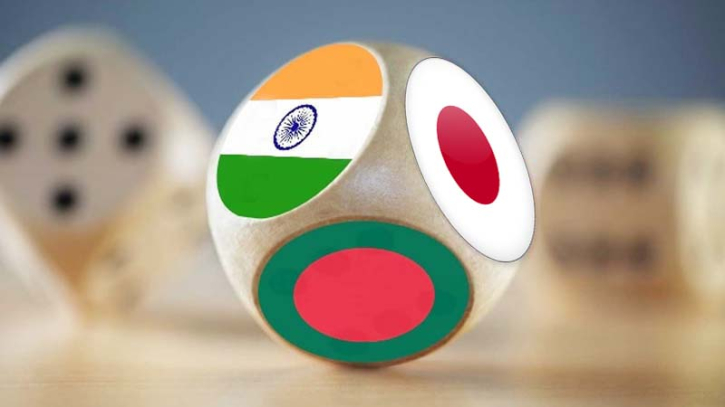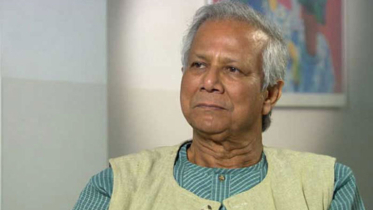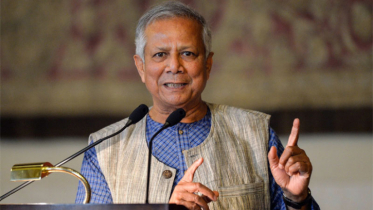Impacts of Japan-India Relationship on Bangladesh

India and Japan have a high degree of congruence in terms of political, economic, and strategic interests. These two countries view each other as partners that have responsibility for, and are capable of, responding to global and regional challenges. India is one of the largest recipients of Japanese aid, and both countries have a special relationship.
The relationship between Japan and India has seen a dynamic shift in recent years, with the two countries deepening their ties in trade, infrastructure, defence and diplomacy. These dynamics have a profound impact on Bangladesh, a country who has been in close ties with both Japan and India.
Japan has been a significant source of foreign investment for India, with Japanese companies such as Toyota, Honda, and Suzuki establishing manufacturing facilities in the country.
Japan has also provided substantial aid and financed various infrastructure projects, including the Delhi Metro system. The India-Japan Comprehensive Economic Partnership Agreement (CEPA) has helped to boost trade between the two countries, with India being the largest recipient of Japanese aid.
For Japan, India's strategic location and growing economic power make it an important partner for promoting stability and security in the Indo-Pacific region. Japan has also benefited from India's well-educated and highly skilled labour force, with Indian professionals working in various sectors, including IT, finance, and management.
The two countries have a shared vision of peace, stability, and shared prosperity, based on sustainable development. They are committed to a "Free and Open Indo-Pacific" and have cooperated through Japan's Act East policy and India's Look East policy. The strategic partnership between India and Japan is seen as a cornerstone of peace and stability in the Indo-Pacific region.
This relationship has significant impacts on the Asian countries including Bangladesh. The nature of their relationship carries a significant weight due to specific reasons like economic powerhouse partnership, strategic security, technological advancements and most importantly for geopolitical landscape.
While both India and Japan have independent ties with Bangladesh, the undercurrents of their own strategic partnership influence Bangladesh's experience.
Bangladesh is a strategic bridge, not a wedge for both Japan and India. Traditionally, concerns existed that Bangladesh could become a point of contention between India and Japan.
However, Bangladesh has emerged as a strategic bridge. It enjoys strong historical ties with India and a growing economic partnership with Japan, the second-largest receiver of Japanese aid after India. This adept balancing act allows Bangladesh to leverage its position for its own benefit.
The Japan-India relationship offers Bangladesh a mixed bag of opportunities and challenges. For instance - an infrastructural boom will occur in the country since both Japan and India are investing in major projects underway in Bangladesh such as Dhaka Mass Rapid Transit and the Matarbari Deep Sea Port.
Besides improving our infrastructure, it will also help Bangladesh to increase its trade volume since we all know that a stable and cooperative India-Japan relationship fosters a more open regional environment, facilitating ways for Bangladesh to export goods to both the nations.
Collaboration between the two giants can lead to knowledge and technology spillover that could benefit Bangladesh, particularly in areas like renewable energy and disaster management which will leave a huge impact on the country’s tech landscape.
Along with the opportunities, it also brings some challenges. A stronger India-Japan security partnership might indirectly pressurise Bangladesh to choose sides during any potential regional conflict. Meanwhile, competition for resources between India and Japan could lead to less favourable investment terms for Bangladesh.
Japan-India relationship will continue. The road ahead for Bangladesh is to maintain a strategic balancing act. The country can solidify its ties by emphasising its strategic location and economic potential. Bangladesh can champion initiatives that promote regional integration and economic cooperation, benefiting all three nations.
Bangladesh's future lies in a well-calibrated approach that leverages its position as a bridge. By fostering deeper economic and technological partnerships with both India and Japan, Bangladesh can secure a brighter future. With a focus on regional integration and economic cooperation, Bangladesh can also play a pivotal role in strengthening the India-Japan relationship. This will not only benefit Bangladesh but also lay the foundation for the entire region's economic stability in a secure environment. -Source: daily sun
.png)









